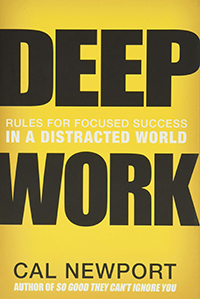In this Episode
- [04:02]Christopher describes a system for outsourcing that works.
- [08:06]Christopher gives an example of hiring 3 people to do one job and finding the best candidate.
- [09:36]Christopher shares how to compare the quality of a candidate’s work: keep the same process and parameters, but differ the data.
- [11:25]Is Upwork the right place for hiring someone full-time? Get Christopher’s top pick for filling full-time positions.
- [12:47]Christopher talks about why it’s important to know the cultures of countries where you’re outsourcing. “Culture will affect how you manage your team.”
- [14:38]Christopher provides his process for making sure that details aren’t missed.
- [17:26]Christopher expresses his thoughts on Upwork’s doubled rates and supplies his process for dealing with it.
- [19:19]Christopher conveys his thoughts on Craigslist and why having employees from the same country is beneficial.
- [21:35]Christopher warns of the dangerous possibility of ignoring international labor laws.
- [22:31]Christopher states the process for finding ghostwriters and what impact it might have on your SEO.
- [24:45]Christopher advises not taking your outsourced help for granted and what mindset to avoid.
- [27:38]Christopher communicates his tips for eliminating distractions: stop constant task-switching and decrease attention residue.
- [36:26]Christopher gives his recommendation for a productive work and home environment.
- [39:06]Christopher relates his experience of using AirBnb for a workspace. “It’s a great way to keep up creativity and happiness.”
- [40:20]Christopher mentions the impact your mindset has on productivity. Stephan shares an example of how some people will get in the flow state on a flight, while others can only watch movies or sleep.
- [41:55]Christopher addresses the practice of working with music and how his strengths and weaknesses come into play.
- [43:29]Christopher talks about writing a book when you aren’t a writer. He wrote an outline and recorded his thoughts on his phone.

Chris, it’s great to have you on.
Thanks, it’s great to be here. I really appreciate you asking to be on the show today. I also wanted to just take a second and thank you for your SEO help in Custom-Toll-Free. Actually, some of the tips and things that you gave me were able to help me get maximum value when I ended up exiting the company because of our high web position, so thank you.
Oh, thanks. That’s awesome. I’m so glad. We’ve been friends for a while now. We met in 2010 at Think Tank. One of the first things that you did, you’re just a guy who just gives value and is just really generous. We met and then shortly thereafter you gave me this whole training session, no strings attached, you’re just giving a how to create an offshore team like a blog manager who is like an Uber VA, Uber Virtual Assistant managing a bunch of blog contributors, who were ghostwriters for a blog you were managing. I was just so impressed. I took some of that great knowledge that you shared with me and used it to create my own outsourced team. It was just really great. Maybe we could start by you describing a process for having whether they’re virtual assistants, or ghostwriters, or systems administrators, or web designers, or whatever. Maybe you could describe a system that works for outsourcing versus a system that doesn’t work. I’m sure you’ve seen a lot and heard lots of poor stories of what doesn’t work. Maybe contrast the two.
Okay. First things first, it’s really important. You have to go back to the basic crux of it. The basic crux is as entrepreneurs, we want to do things, we want to be important because people want to be important, and they want to do things. As entrepreneurs, realistically, our job is to literally spend our days finding work for other people to do. Take our brilliance, because entrepreneurs are brilliant people, allowing them the opportunity to turn our interesting thoughts into reality. These are generalizations but entrepreneurs usually have creativity, passion, and vision. Sometimes, we forget the fact that a lot of times other people don’t have creativity. They’re way better at putting together a spreadsheet, or they’re way better at managing the team of people, or way better at doing XY or Z than they are at coming up with a great idea. In a good team, everybody should focus on what they do best. One of the things that I always suggest people do is start with whatever you’re least good at, or like to do least as generally what you’re least good at.
In a good team, everybody should focus on what they do best.
From there, you want to start building a team around that. For example, I currently have a project going on, we’re gathering some information, and we’re doing a whole build-out on information. I have somebody that I hired in Puerto Rico. This woman is fantastic. I found her through Upwork. Upwork is a program that I’ve used a lot over the years. They recently doubled their prices. I’m probably going to start looking for ways to use them less. They’re still a great platform. That platform really allows you to go in, find people that have different skill sets, then simply just hire them to do what they do. One error that most people will make is they want to interview, or they want to have these really traditional long processes that take people and screen them to make sure that they’re right person for the job. As a general rule of thumb, it’s so much easier to just hire three people to do the same damn job with really tiny teeny small tasks and then see which one does the best, then fire two. This way allows you to just get in, you never know how the pretty girl at the prom kisses until you kiss her.
I always try to break the business down somewhere in my head like dating since I’ve done a lot of that in my life. It just becomes simpler to me. You never know how that girl’s going to kiss, or boy, or either one, which whoever, whatever you’re into, until you kiss him, you just don’t know. You can theorize it based on what they’re wearing, or how they look, or how they walk, if they’ve got the right color hair, they look good. But in the end, you never know. The same goes with hiring for me. It’s like okay, I never know how somebody’s going to work until I work with them. Let’s come up with a really small quick task to give that person the opportunity to show me how they work for me to experience how they work, maybe they do a great job but I just don’t like them. That’s a reason not to work with somebody sometimes. It’s like this person did a great job but they’re really difficult to get to do a good job. I don’t need to work with that person. I can go with the other person that did a great job but they seem to be like ease and flow with it.
Then boom, you hire that person and you give them more tasks. It’s not unusual for me to hire sometimes six people for the same job. What I’ll do is I’ll break that job out into small little pieces, sometimes the same, sometimes different, then have them come up and produce results. The interesting part is I recently needed to have some spreadsheets to make. These are for a real estate investment cause I’m doing a lot of syndicated real estate investment right now. I really wanted to get an idea of how this project was going to look that I was coming up, but I didn’t really know what I was looking for. I hired three guys. These weren’t small people, there are not people offshore for $3 an hour. These are guys that are charging $75 or $100 an hour. I gave them, each five, five hours. I said, “Listen, come up with this spreadsheet, I’ll see where you’re at after five hours. Here are the parameters.”
The funny part about it was one guy, he dropped out, never took the job. The other guy, he came back and he came back with this fairly pretty presentation that I could give to investors. Those numbers were kind of weak. The other guy came back with no presentation, and his numbers are really strong. In this particular case, it just worked out very synergistically that these guys just complemented each other 100%. Didn’t know each other, never met each other, didn’t even know that there was another guy working on it. One came up with the first component, the second one came up with the second component. In the end, I had this great presentation with great numbers that I could give to an investor.

That’s great, yeah. Perfect. You say sometimes you give people the same tasks, and sometimes you give them different tasks to compare and contrast the two. How do you know the quality of somebody’s work if you’re giving them different things to do? You just get a sense for what’s it like to work with them? I would think that it’ll be just simpler, just give them the same thing. Like, “Okay, I need a spreadsheet created, I need you to do this research, I need you to create these formulas in the spreadsheet.” You just give it to three different people and you see how they perform. Sometimes, you break it out differently.
You are correct. Sometimes you can break it out differently. For example, I could have asked somebody to create a spreadsheet under XYZ parameters and then give them three different properties with the same parameters. In doing so, the process of creating the spreadsheet is going to be the same, the parameters are going to be the same, but the property data that they’re going to come up with is going to be different. Does that make sense?
Yeah.
That way, it doesn’t have to be wasted time, effort, and energy on my part, vetting these people. I could theoretically come up with three wins and have three people that did a great job. With those three people that did a great job, they would then end up having three different positive result sets. Or two of them, one of them doesn’t do a good job but I still end up with two results, let’s call them. That way, I still have a good understanding of how they work. Did they do the job correctly? The only difference is the data in the framework. Does that answer your question?
Yeah, yeah. I agree that interviewing is a terrible indicator of future behavior inside of a work environment. It’s best to just give them something to work on as a trial assignment. Upwork is a great place to do that because they’re used to getting these piecemeal assignments. What if you’re looking to hire somebody, let’s say on a full-time basis, however. Is Upwork the right place for a full-time person or is there a better resource that you would find?
It depends a little bit on where you’re going to hire. Indeed is actually an interesting new place that I’ve hired some local talent recently. They’re getting some pretty great reviews. Those people are looking for traditional, regular everyday jobs. I did the same thing, literally. I put a thing out for a property manager to manage some of my properties here in Seattle. I came up with three different people. I gave them three different small tasks. “Hey listen, this is what I’m interested in doing. How would you handle it?” I had them all come up with a little proposal. Because it’s the real world, nitty-gritty hands-on property management, I think some of those people still use fax machines, I couldn’t get too technical with them. I did a very similar scenario where I gave them some projects and I made them do a proposal on how to handle a problem. It wasn’t complex, it was a little one-page proposal. They came back, and I selected the right person. That person came back and said I’m going to handle this correctly, or in a way that I thought was a really smart decision.
If you’re going to hire offshore, you really need to know the culture.
If you’re going to hire offshore in like the Philippines, I like the Philippines a lot. You really do need to know your cultures. The Philippines is great, they speak awesome English. They tend to have a great work ethic as a country. These are all broad definition, or broad generalizations I mean. You can’t truly know if somebody’s going to be good or bad because of the country they come from. But it is easier to find somebody with a good work ethic in the Philippines than say some other country. I won’t bash any of the other countries. There are some countries out there where there’s a culture that are basically, they’re used to being micromanaged. Your management costs are going to be massive even though you can get people really cheap, you’re going to end up spending way more in management. I had one employee we had offshore, I had a US-based project manager, it was a web dev project.
Literally, the employee would call up on Skype and while he was working he would talk to the manager the entire time. The manager would put it on mute, every once in awhile he’d hear out of the corner of his ear something. He’d stop doing his other work, he’d un-mute it and he’d say, “No. I said do this.” “Okay.” Then he would go back, put it on mute and then he would continue to work, he would babble along. That’s how he had to be managed. He did a great job but there’s some significant management expense to that. You lose the value of the offshore employee if you have to literally sit there and nanny them.
I can’t even imagine that.
It doesn’t matter which country that you work through, you want to have some basic understanding of the work culture that’s in that country because it’s going to affect how you manage that person which is the same with any employee that you’re going to manage. You should have an understanding of who they are in order to be able to be a better manager. The generalizations to some degree will hold true in the area of if you’re managing employees in India, they need to be managed a different way than you would manage somebody in the Philippines, or in Brazil, or in the US. If you want to go back and you want to redo this, re-edit it, we can but the reality is you have to look at that in a kind of cultural aspect. It’s not about the race of the person but there is a culture. That culture really, the culture in India particularly, it really is a culture of they really want to please the boss, they’re more concerned about making a mistake than they are being efficient. That culture, you have to know that in order to manage that employee efficiently. Make sense?
Yup. Culturally speaking, how would you manage different cultures to maximize their strengths? A work environment, or a work culture in India versus in the Philippines, versus Bangladesh, versus Brazil, or wherever. What’s different that is important for an outsourcer to know?
Well, do you want to know the difference between each one of the cultures?
Yes, if you’ve dealt with four or five different countries, you’re outsourcing, what have been some of the lessons learned for each?
Okay. Well, I definitely like the Philippines, I think they speak great English. I think that in the Philippines, they tend to have a really good work ethic. The Philippines also love Americans. There was this thing called World War II when the Japanese took over islands in the Philippines, they weren’t very nice to the locals. The Americans came in, they were a lot nicer to the locals when they retook the islands. Believe it or not, that culture is still, that event has affected the culture in a way that today, even though there’s a lot of countries out there that are a little annoyed with American at the moment, the Philippines is not one of them. There’s a bit of a status there that gives them the, if they work for an American company, or an American boss, there’s status there. They tend to have a great work ethic where they work really hard there. In India, I have found that those countries, they need more management.
Culturally, what happens is they are more concerned with keeping the boss happy than being efficient, correct, or right. They are definitively management-heavy to the point of micromanagement at times. It’s important to know that going in that to some degree it’s culturally okay to lie to you as the boss as long as they keep you happy. There’s something that makes them sometimes think that for some reason that’s okay. Haven’t quite figured that one out. We do have employees that we have from India on occasion, but they’re definitely more management-heavy. I like a lot of the South American countries as well, the same time zone. There are some really smart people in some of those countries, especially countries like Argentina. Panama has some really smart people. When it comes to hiring people that are graphic artists, I find that people from the South American countries or from Eastern European block have a very different artistic flair than we would be accustomed to here. It’s really quite interesting.
How so?
I don’t know if I can put it into words. But you can tell. Listen, you got Spanish and what is it, 50 different countries, or 80 different countries. When I travel from one Spanish country to the next, I don’t know what the fuck the next guy is saying. I hope you don’t mind me swearing on your podcast. Seriously, like one year I went to Costa Rica, then I went to Panama, then I went to Mexico, and I went to Argentina. Between the four countries, who fucking knows what these people are saying. Do you want to ask for a bottle of water? It’s completely different. Same thing with art. To some degree, art is an expression of culture. When hiring graphic designers, or people to do page layouts, and things like this, every country has their own flair. It’s their cultural expression. It’s fantastic in the fact that you can tell the difference.
Sometimes I’ll be looking through samples of what people are doing. I’ll be like, “Oh yeah, that person’s from that country, or from that area.” It goes regionally. Eastern block has a way that they do things. I like to describe it as a little more blocky for some reason. You think this very stanch USS are kind of blocky in that scenario. Not a lot of color, flair. Sometimes you get that from the Eastern European countries. Mind you, these are all generalizations. They’re not true of every worker. In South America, the Latin countries, they tend to be fiery and passionate in its own special way. It reminds me of that, I don’t know how to describe it, but it’s kind of fiery and passionate in its own way. It’s interesting.
As a general rule of thumb, entrepreneurs are erratic, irrational, slightly crazy, but they are creative and very personable.
Right. But then you test these generalizations out by getting multiple people to participate on the job and do a trial assignment.
Correct, yeah.
That pans out or not?
Yeah.
What’s your process for making sure that things don’t get missed? Like details don’t get missed and that you don’t have to do too much micromanaging. Do you have checklists? Do you have a manager from another country that oversees things, like from the US that oversees a team out at the Philippines, or wherever? How do you do that?
The process of managing, like the nitty-gritty details is, I can tell you the right stuff to do because I tell my employees to do that. Do I do that even for my own employees? Not all the time cause I’m an erratic entrepreneur. As a general rule of thumb, entrepreneurs are erratic, irrational, slightly crazy, but we’re creative and very personable. Yes, you definitely should have checklists. Some great management tips are they should check in everyday when they start working. Either by Skype, I use Google Hangouts. They check in by Google Hangouts. Once a week, I utilize a SAAS program, I use 15Five, which is basically this very simplistic program that supposed to take them 15 minutes to fill out, me 5 minutes to read. I say, “Basically, what were your wins for this week? What are the top three things or five things that you worked on this week? What do you need help on?”
Those are three questions I ask almost every one of my employees. I have about 15 or 20 worldwide. I give you a range because honestly I don’t know how many are on some teams. I have an HR manager for a project and she’s in Puerto Rico. She hires people, fires people all the time. She’s in budget, great. I don’t care. She’s in budget, she produces the results, we’re giving the right stuff that we need on our 15Five reports and everything’s good. When they’re done working at the end of the day, they check out. They’re like, “Okay, I’m done. Here we go, here’s my, I’m done working, here’s an update.” If they need to do an update, or put it in their task. A lot of my employees just check in once a week and that’s fine. Really best practices, they should be pinging me every day when they start work, every day when they leave work. It creates a better, more rigid schedule for them. There are some programs out there that will do the same thing as Upwork, which is they log in, they record their screen. I’ve looked at a couple of them. We haven’t really pulled the trigger on any of them, but we’re thinking about doing that, because we’re getting to that size.
I’ve used Time Doctor, I still use that. That works pretty well. It takes screenshots, tracks the amount of mouse clicks and keystrokes, just like Upwork, and yeah, works well. It’s like $10 a month per user.
Oh, that’s awesome.
Yeah. You said Upwork recently doubled their rates, or their prices. They increased the percentage?
They did actually. They did. It was a pretty greedy move, I thought. I’m pretty disappointed with them. Basically, Upwork went in, I think they used to be about 10%, give or take a couple of points, I don’t remember what it was, but it was about 10%. Now, it’s like closer to 20%. I don’t think they need that much. I think it was a greedy move. I think it’s going to be the end of them. A lot of the people that we talked to, they are not happy about it, and they use them less. I used to be pretty stanch about it cause often times we get contractors are like, “Hey, I’ll work off, and so, and so.” “Hey listen, we’ll work offline, blah, blah, blah, blah, blah, blah.” We would always say no because it’s just out of integrity for me. I don’t know. Now, if somebody’s been with us for a reasonably long time, we’ll take the deal. It used to be that we had a corporate policy, it was a year and a half, or two years, or whatever it was, before we take somebody offline. We’ve shortened it, we still want Upwork to be able to make their money but we’ve definitely shortened our time. I’m sure that we probably have a higher ethic standpoint on that than most companies would. We’re not judging whether or not it’s right or wrong. I know a lot of people are just like, “Why would we pay 20% to them for nine months a year,” something like that.
Do you use any other services besides Upwork to find people? Like freelancer.co or Elance, or anything like that?
Elance officially got bought by Upwork. Freelancer, I’ve not tried.
Do you ever find people on Craigslist?
No, we’re not going to do something that would require like a Craigslist type ad. We use Indeed now. I have, in the past, yes. I have used Craigslist. You can actually do pretty good in Craigslist. What I find is that each country will generally have their own website that they utilize. If you’re going to go in the country, I’m really a big fan of country targeting for a couple reasons. Let’s say for example, you like the Philippines, or you like Argentina. Having multiple employees in the same country is pretty handy for a couple reasons. One is, sometimes you’re going to want those employees to talk to each other. You’re going to want those employees to interact. If they’re all from the same country, they will have cultural and language similarities, that will make that interaction easier. The second reason is because sometimes you go to a country and they have their own, there are like two or three, or one or two main job boards that they utilize. Some countries might use Craigslist, some people might use zimdimdulmdimmudddddddddd.com.
What’s the url of that?
It’s zimdimdulmdimmudddddddddd.com. That’s the best place to get employees. You should only look there.
Seriously though, there’s onlinejobs.ph for the Philippines which is the place for job hunters to look in the Philippines.
Yeah, use that one. That’s a great example. In that country, that’s the best place to go. Craigslist, you’re not going to get a ton of results, they cannot get the online jobs, it’s going to give you way better results.
That service is I think $90 for three months or something like that. You need to have a paid account in order to post jobs and even get to look at people’s full profiles, so that you can contact them.
Right, yeah. That’s also a great example. When you track by country, it’s just makes things easier. Also, as a manager or an owner, you know the cultural differences already going in. You don’t have to learn 75 different cultural differences. Then there’s holidays. There’s actual labor laws, cause here in the US we have these things called labor laws. Each one of the countries that we go to has labor laws, we just blow them off and ignore them because we’re in another country. There’s no extradition treaty for not paying your employees overtime, which is all good and fine but you happen to be on vacation. Let’s say you get to a significant size, you want to take a vacation to the Philippines, whoooo, may have a problem. Never heard of that happening but it is a rare possibility. You need to be able to understand what their laws are in those individual countries if you start to get to scale. If you’re a small company with one or three employees, whatever, nobody’s ever going to really care. The whole goal of this thing is generally to get big, or bigger. If that became the case and you had 200 or 300 employees in the country, you might get on their radar. You might need to understand their labor laws a little better.
Good tip. What if you wanted to have a ghostwriter or editors working on your blog, on your book, on your articles, what’s the process there? I know you’ve used ghost writers and editors in the past. Walk us through that. How does that work?
It’s been awhile since I’ve done that. I’m pretty sure there’s some new sites out there that are specific to pimping out ghostwriters, and editors, and blog writers, and blog articles. However, I know people that have set up Mechanical Turks where they go out and they’re like, “Okay. For every article that gets written, we’re going to give you a buck, or two bucks.” There’s people that will go out there and spit out articles. They put that content up into their sites. Google less and less likes that for SEO, which I’m sure you probably would agree. I’m not sure why I just gave a SEO tip to you. It is what it is. You can do that and you can get content that way. It’s not necessarily quality content. There are certain countries you can go to that speak English really well, where you can pay them a lot less, basically. Ones that come to mind off the top of my head are South Africa. It’s a pretty low wage and good speaking English. Good English speaking people. The Philippines is another one that comes to mind. Believe it or not, Hong Kong actually is not a bad place either. That was owned by the British for 100 years. You can get some relatively good deals there. Where else? Australia sometimes. Australia, New Zealand, good English speakers, lower wages in here. You won’t get as good of a deal as you would in South Africa.
There are certain countries you can go to that speak English really well, where you can pay them a lot less, basically. Share on XI had a whole team in New Zealand for many years. I moved there back in 1999 and stayed until 2007. Sometimes I would joke that I have a kiwi sweatshop. They thought it was funny but not that funny actually. I paid them really well, they got to work in really interesting US-based projects and everything. The difference in exchange rate made it basically half price was what I was paying for really top-notch talent. It was amazing. I had a great team.
You can totally do that in other countries. In the end, one of the things that I think that we forget a lot of times is that the people over there are people. It’s really easy because you never meet some of them. Some of them you’ll never even speak to on Skype. It could be easy sometimes to, I don’t want to say dehumanize them but devalue them.
Or take them for granted.
Or take them for granted. I went out on my boat the other day. I have a friend of mine and he brought this girl out on the boat. She’s a lawyer, she’s got a couple of law offices in the country and out. Whether or not she’s successful, I don’t know. She was drinking her vodka out of the water bottle. I thought she was drinking water but somehow she ends up snookered. Somewhere in there, she admits that she refers to her employees as her minions. There are three other entrepreneurs on the boat and we’d all look at each other like, “Holy shit.” It doesn’t matter. You just can’t refer or even have the mindset that your employees are your minions. Because whether or not they’re US-based, or offshore based people, the employees that we hire are the people that build our businesses for us. They’re the ones as entrepreneurs that allow us to go travel and do the things that we do, and be who we are, and keep our minds free so that we can be creative, and charming. It’s important not to have that mindset where you don’t value those people that are helping you get from A to B.
People are not assets, they’re human beings. Some folks lose sight of that.
Exactly. Unless you’re dealing with the CIA, then they’re actually called assets.
I suppose, yeah. From what I’ve seen in the movies, yes.
Yes.
What are sites that will help you find writers specifically? Textbroker is one that I have not used but I’ve heard of works in that regard. Have you ever had an experience with that service?
I have not. It’s been awhile since I’ve done that type of stuff. Most of my offshore people nowadays are doing data gathering. I’m currently working on a project, senior.center. It’s www.senior.center.com Basically, it’s information stop, we’re get and going, find all of the senior centers, and senior living in affordable house, or senior affordable housing in the country. We’re centralizing some data there. Even with offshore, I’m still spending a huge chunk of money to put that data together. In the end, we’re going to have our pretty cool info site for a market that’s going to be growing pretty rapidly in the next five to ten years. That’s where most of my energy goes. So no, I’ve not used the Textbroker site.
Okay. Another topic I wanted us to make sure we made time for is distractions. Eliminating those or minimizing those, you have a whole chapter dedicated to this topic of distractions in your book, 1-800 Awesome. Let’s talk about distractions. What are your tips around that?
Distractions are just a killer.
Honestly, distractions are, they are just a killer. Earlier, we were talking a little bit before we got on the phone call, you’ve mentioned that you wanted to talk about distractions and I thought it was so timely. Literally, I got a phone call an hour before this from my business coach. You out there, don’t have a business coach, you should get one, cause they make all the difference in your life. My business coach had called me because she had an emergency, I believe I called her this morning. She’s like, “I want to make sure you’re on track for the day.” I said, “Listen, I’m completely overwhelmed, I’ve got all the of stuff going on. I’ve got some stuff going out with my kid, I’ve got some stuff going out with this, and this project, and this project, and this project, and this, and this, and this, and this, and this, and this, and this, and this, and this, and this.” She’s like, “Okay. Listen, you’re going to hate this but what I want you to do as I want you to, you’ve committed to that phone call, you gotta have it.” I said, “Well, of course, that’s what I’m going to do.”
And she’s like, “As soon as you’re done with that phone call, I want you,” That’s this phone call right now, “I want you to sit down and work on X project, and only X project until it’s done.” She’s like, “I don’t care if you’re there until midnight, I don’t care what else pops up, I want you to only work on that one thing.” She goes, “I guarantee, it will change your life.” I was like, “Okay.” Before this phone call, I literally took my whole to-do list for the day and ripped it up. I wrote four things that needed to get done. That’s all I started focusing on, for the 30 minutes before this call. I made more progress on that stuff, the 30 minutes before this phone call, creatively, through creativity, and just having a better understanding of how I need to have everything mapped out than I had the whole week last week, because I literally got rid of all the other garbage that needed to be done. I was really clear and focused. When you change a thought from one thought to the next, there’s a time lag that your brain has before you can really get fully engaged. I don’t know what the exact figure is, is it 15 seconds, 45 seconds, even if it’s 2 seconds, there’s still a time frame. If you’re bopping from thing to thing to thing to thing to thing to thing, your brain’s got to shift. Each one of those shifts, you lose time. If you think about how many times you think about a different thought in a day.
Let’s say you have, let’s make up a number, 1,000 different thoughts in day. Probably after this, I’m going to Google it to figure out how many thoughts somebody has in a day. I think it’s higher, I think it’s like 10,000. Let’s say it’s 1,000 thoughts a day. You get 1,000 thoughts a day and every one of those thoughts, let’s say you lose 10 seconds. Basically, you got 100 seconds a day, then you extrapolate that through your life. If you were to be able to minimize that, you’re going to be able to literally gain months in your life that you actually have a clearer understanding of where you’re going to go. Basically, for every thought, every time you change thoughts, let’s say it’s 10 seconds. You do that 1,000 times. You lose 10,000 seconds a day. Let’s say, divide it by sixty, everyday you do that, it’s 166 minutes of time where you’re not as clear-headed as you could be.
You’re not saying eliminate other thoughts, just try and focus your thoughts on the one thing that you should be working on at that moment.
Right. If you’re going down the list the 10 different things, you’re going back and forth, bah, bah, bah, bah, bah, bah, bah, bah, bah, bah, bah, bah, bah. Everybody knows you’ve had these feelings. You get anxious and scattered. Your anxiousness level goes up. You got all these different things, you get overwhelmed, you can’t think clearly. It takes you longer to do things than you would normally do, versus if you just sat down and focused on it. We all have those feelings. It lowers the quality of your life to have a bunch of distractions. It shortens your creativity because you can’t be creative until you are focused on something. It also shortens your effectiveness as a worker. We’re all doing some sort of work even if it’s having fun at a full-time job. It shortens your ability to be effective in what you’re doing. Let’s say a task normally takes you five hours. You focus on it, you can do in 3 hours because you’re not going back and forth, and you’re not having all that lag time.
By the way, that lag time has a name. I found out about it from reading Cal Newport’s new book, Deep Work. I actually interviewed Cal on this podcast. That phenomenon is called attention residue. It’s a lot longer than just a few seconds. It’s anywhere from 7 to 20 minutes. It’s extreme. Task switching, where there is no such thing as multitasking, there’s just task switching. If you quickly switch from task to task to task, you’re leaving some of your attention with that previous activity, that previous task you are working on. It’s kind of a drain on your focus.

Totally.
Do you use any kind of apps for helping you focus? I just discovered an app called Focus Booster that I’ve been using over the past week. It’s a Pomodoro timer, is a 25 increment timer, then you take a five-minute break. You focus on only the thing that you’re supposed to be focusing on for about 25 minutes. If you stray, if you get sucked into Facebook, or some other task, or whatever, you have to start the timer over. You don’t want to get off task because it can be really painful to reset that timer. That’s a cool app I’ve been trying out.
What we need to do now is we need to come up with a Bluetooth electric shock that you can attach to various areas of your body, so that if you get off task, bzzzz.
There actually is I think some sort of a wrist band or something that I keep seeing on Facebook, getting promoted with Facebook ads. It’s something that zaps you. So weird. Now I’m going to find it.
Yeah. The whole thing about distractions is they’re distracting. It really does just, it saps your efficiency. Literally, this conversation is really so well-timed because I have been a terrible student of my own teachings on this particular topic for the last literally a month. I find that often times, things, where I’m often life, get handled in weird and strange ways. You brought this up today.
I just found this wrist band, crazy thing. It’s called a Pavlok.
I’ve seen it actually. I’ve seen it.
So weird. The idea of wearing a rubber band, then you pluck the rubber band, give yourself a negative reinforcement if you’ve, you’re trying to stop smoking or whatever, and you went and had a smoke.
I just looked it up because Google is always correct. It says 30 to 48 thoughts per minute is what we have. That’s the number of thoughts. On average of 50,000 to 70,000 thoughts a day.
That’s mind-boggling.
If you cluster those thoughts together about the same topic, you don’t get attention residue. If every one of your 50 thoughts is different, you’d never get a chance to catch up, even at seven minutes. You’re always in pandemoniac.
It’s a good reason tip to practice mindfulness. You quiet your stray thoughts. Let’s talk about one more topic, that’s environment. Do you have a chapter dedicated to that in your book as well?
Yes.
What would you recommend for a productive and fulfilling work environment and home environment?
For me, they’re a lot the same. I got rid of my office years ago. I have a space over here at a local shared space. I’m actually getting rid of it. I’m going to go back to work in at home. Only reason I had this particular space is I had an employee that was local that needed a workspace. We’re working on a project and we just needed some space to get some stuff done. I try to always run my businesses. It’s just disburse workspace where people work from their homes. Not everybody can do it. That’s always something you have to take into consideration. Sometimes it is a question that I’ll ask people before I hire them is where you’re going to work. I think it’s really important to have a space that you enjoy being in, physically. I think it’s really important to make sure that it’s quiet, there’s not a lot of distractions around you. For example, right now I’m actually looking for a new place to live. I’ve been bee bopping around for a couple of different reasons here. I’m currently looking at really interesting properties. The market in Seattle has gone crazy so I decided that I’m going to rent for a year.
In the moment, I own multiple properties obviously as a real estate investment but I’m going to rent. Tomorrow at 3 o’clock I’m going to look at this house. It’s a $3 million house. 5,000 square feet, multiple bedrooms, amazing space. $6,000 a month, which depending on where you live in the country, that may seem like an astronomical amount but in Seattle you can get a two-bedroom apartment for $3,000 a month, or more. Getting the high-end properties, it’s a fantastic opportunity to simply get way more for your rental dollar than you could ever possibly buy. You turn around and buy investment property for investment. In this particular scenario, I want to do this because, one, I want to have a space that is great for me to work in, it’s great for me to live in. Also, there’s enough space for me if I want to have somebody else. I have a small daughter. If I want to have somebody else that has kids in the house as well, I can create a kid community. We could do that cause there’s more that enough space to do that. I could theoretically have everything I want under one roof, which is a fantastic way to go.
Have you ever thought about using AirBNB to find a work environment?
I have. As a matter of fact, I used to before I had a daughter. My daughter is one. Before I had a daughter, I would often simply go to another city and work for a week, or two weeks, or three weeks. I have a laptop, will travel. I would go and take my cellphone and my laptop, I would find that I would get way more done, way more, by simply going to another city. Working from that other city, great weather, interesting new places to go explore. Usually, I get a nice hotel room or I use Airbnb and get a nice place. Just work during the day and like I would anywhere else, then go out at night, or vice versa. It’s a great way to keep up both creativity and happiness. Because when we’re happy, and when we’re lit up about the lives that we’re living, things flow. Things generally come easier, money flows easier, happiness flows easier. There’s a whole theory about the happier you are, the easier money will flow to you. I think that is true to some degree.

Your mindset really does have such a profound impact on your productivity, on the result that you’re creating for yourself. Some people consider working on the plane as some of the most productive times, for example. If they’re on an airplane, they’re in flow and they are getting just a ton done. Other people, all they can do on an airplane is sleep or watch movies.
I’m a movie guy.
It’s just a mindset thing. I read David Allen’s book. I’ve actually interviewed David. The book is called Getting Things Done. There’s a whole productivity methodology based on the book called GTD. He talks about, he gets in the flow state by just getting in place, on a flight, he can get so much done. I know other people who will book themselves a Trans-Atlantic or Trans-Pacific flight because they have a book deadline or something and they just need a place to focus. They are so well trained to focus on an airplane. They’re people who are just like TV, and video games, and so forth, that’s all they could do on an airplane. It’s so interesting and it’s the same environment. We have the same 24 hours a day. Everybody’s given the same amount of time, it’s just what you do with it. Some people Netflix and chill, other people will build the next Uber, or Airbnb.
It’s crazy. The environment really is so important. Some people love that environment. Some people like to work with music, some people don’t.
What about you? Are you a music guy or no?
It depends. As a general rule of thumb, no. I don’t, because I’m a talker. It’s important to know what your skill is. Some people are really good at writing, some people are really good at art, some people are really good at talking. The ones that are really good at doing all three, I’ve never really met them but I’m sure they’re out there. For me, my strong skill is being able to talk and communicate. I’m really good at that. When I sit down and write, I’m slightly dyslexic. I just leave words out of a sentence. It’s like if we were talking and be like, “Hey, really good today.” I’m like, “Good what?” It’s like somewhere in my head, in my head I said that word and I wrote it but it never really happened. My mind just goes quickly than my fingers. My fingers can never keep up. From my understanding, Einstein had the same thing so I always tell people it’s a sign of my genius. I totally got off track what I was talking about this.
Well, I’m a talker too. Writing for me is hard work, whereas it just flows when I’m talking. I’ll dictate articles, or even better get into a conversation with somebody, like my assistant, to talk through the article. He or she would draft that article based on the recording. If I’m just recording something to dead air and there’s nobody on the other end of the line, it’s a lot harder for me to get into that fluid state but I’m a talker as well.
That’s how I wrote my book. I wrote my book, I made an outline which was painful to make the outline. I made the outline, then I literally just got on the phone. Basically, I got on my phone cause I recorded it on my phone. I just started to talk, started telling stories about the things that were in each one of those areas, each one of those topics, and then how they’re related. It just flows for me. It just does. As I did that, I got that all transcribed. Once it got transcribed, I sent it off to a ghostwriter, then I sent it off to an editor, then another editor, then I had a book.

Presumably, you found some of these folks on Odesk, now Upwork.
I found all of them except for one.
Got it. One you found, where else?
Actually it was a referral from a friend, it was the editor.
Okay.
Yeah. The final piece, I think, what you call them? It’s like a construction editor or.
I don’t know what do you call.
Basically it’s the last editor. There are multiple layers of editors. Here’s your first draft editor. The first draft editor comes out with the book. Somebody else goes through and then they make the whole book flow. There’s a version of my book out there that it’s like really great but people get about a third of the way through. Like, “It’s great.” The third of the way through they’re like, “God, it sucks.” It’s just because the book loses flow. There’s another editor that will come in and has a whole big picture, they’ll read it. They’ll read again, and they’ll read again, which to me would be an entire week and a half, just doing that. Somehow they do it in a day or two. They read through it. They’re like, “Oh well, we just need to move this over here, and this over here, and this paragraph goes from this chapter over to here.” Next thing you know, you’ve got this book that flows very smoothly.
Yup. Very cool. Any plans for another book?
None at the moment. I may do another one at some point. I really enjoy the process. As you know, you have some books, you don’t really make your money in books. You always make your money on whatever other product or service you’re getting out there, promoting. That’s okay because that’s just how it works. I think in the moment I have a couple of ideas for books, but it’s not something that I’m feeling like I really want to engage in right now. Right now, I’m really heavy on some of these real estate syndications, there are some great properties that I’m putting some money together to buy. I’ve come up with this really crafty solution. Basically, go out and buy some property, it’s in a really, really good up zone area. Property cash flows so if everything goes to crap, we’re still making money just a little bit. If everything continues to go up, we knock it all down, we build high rises, or what have you. It’s a great way to really maximize the value of real estate. On top of that, I’ve been building a database here where I’ve got all the properties in the database, I’m analyzing the data, utilizing some really complex algorithms from a technological standpoint so I can isolate properties and go buy them off-market. If anybody’s interested in investing in real estate, you can go to www.offmarket.expert. That’s the project that I’m currently working on.
Awesome. Well, we’re at an hour. We better wrap this up. This was great. I appreciate you being so open and sharing about your experiences and your approaches to outsourcing and building an offshore team. If somebody wanted to work with you, like on a real estate deal, or they want to pitch you for angel investing, how would somebody reach out to you?
The best way to do that is ad***@*******gh.com.
Alright, perfect. Alright, thank you, Chris, thank you, listeners. I hope you got some great tips out of this that you’re going to implement. This is Stephan Spencer signing off. We’ll catch you on the next episode.
Important Links
Connect with Chris Rugh
Tools/Apps












